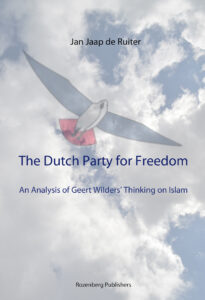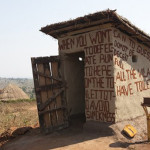Edwin Reesink – Allegories of Wildness ~ The Name, Fame And Fate Of The Nambikwara ~ Three Nambikwara Ethnohistories Of Sociocultural And Linguistic Change And Continuity
Download the complete PDF (34Mb)here: 0823Reesink
A ‘primitive wild people’ that only Rondon could ‘pacify’, that was the reputation of wildness of these ‘savages’ around 1910. Not only that, Rondon also renamed them as the “Nambiquara” and hence, a few years later, this people acquiered its first fame in Brazil with a new name. Actually, colonial expansion and war had been part of their history since the seventeenth century. The crossing of the enormous Nambikwara territories by the telegraph line constructed by Rondon’s Mission produced, as far as known, the first real pacific contact. For those local groups most affected it proved as disastrous as all ‘first contacts’ without any preparation and substantial medical assistance. When Lévi-Strauss travelled through the region the so-called civilization had receded again. His research was very severely hampered by the historical consequences and by the fact the Indians still retained their political autonomy. Yet he has remarked they were the most interesting people he met and regarded this journey as his initiation in anthropological fieldwork. Tristes Tropiques made this people famous to a very large public and fixed another particular image of the Nambikwara. And then, in the seventies and eighties of the last century, the final assault took place by their being “before the bulldozer” (as written by the best known Nambikwara expert David Price). Only after a demographic catastrophy, permanent encirclement and great losses of territory, several Nambikwara local groups coalesced and emerged as peoples while many other local groups perished in this genocide. In effect, the so-called Nambikwara never were ‘one people’. This study explores the ethnohistory of the name, fame and fate of three of these peoples — the Latundê, Sabanê and Sararé — and dedicates some special attention to language loss and maintenance.
© Edwin Reesink, 2010, 2019 – Cover picture: Mísia Lins Reesink – Illustrations: Edgar Roquette-Pinto
© Rozenberg Quarterly 2010, 2019 – Amsterdam – ISBN 978 90 3610 173 8
Jan Jaap de Ruiter – The Dutch Party for Freedom. An Analysis of Geert Wilders’ Thinking of Islam.
 You can download the complete book (PDF-file) here: 160124RuiterDPF
You can download the complete book (PDF-file) here: 160124RuiterDPF
The Dutch Party for Freedom. An Analysis of Geert Wilders’ Thinking of Islam.
(Previously published as The Speck In Your Brother’s Eye) – Rozenberg Publishers, 2012/2023, ISBN 978 90 361 0338 1
In The Dutch Party for Freedom. An Analysis of Geert Wilders’ Thinking on Islam, Jan Jaap de Ruiter analyses Marked for Death. Islam’s War Against The West and Me writtten by Geert Wilders, leader of the Dutch Freedom Party.
The solution Wilders presents involves a high risk of invoking violence, even if he states repeatedly that his program should be realized by the word and the pen. Who will give me the assurance that this would indeed be the case? Who can guarantee us that there will not be people who, like so many Christians, Muslims and French revolutionaries, will take up the sword and ‘help’ to realize their goals that way? Wilders’ book brings us nothing new. Not only that, it is also completely counter- productive. Wilders’ message is not like that of religions and ideologies, which not only have a negative but also a positive side. It is exclusively negative. He focuses on the shortcomings of the other, accuses the other of being violent by nature, and uses words that can easily be interpreted as allowing violence to fight the enemy. He acts in exactly the same way as he perceives his opponent does. He sees the speck in his brother’s eye but fails to see the log in his own.
It may very well be the case that Geert Wilders will in due time give up his position as leader of the Freedom Party and leave the Dutch political arena. He might indeed, as was suggested, join an American think tank or travel the world spreading the message of the danger of Islam. Irrespective of where his career leads him, this will not mean that the anti Islam discourse will die out. On the contrary, it is supported by numerous others and in particular on the Internet it is very strong. Therefore countering this ideology by arguments, by pamphlets like this, remains necessary.
‘Am I showing myself to be a reprehensible cultural relativist here?’, asks De Ruiter in one of the chapters. ‘Undoubtedly’, is his answer.’
See the RQ online version here:
- Page 2 of 2
- previous page
- 1
- 2




